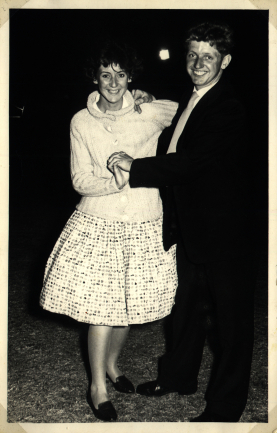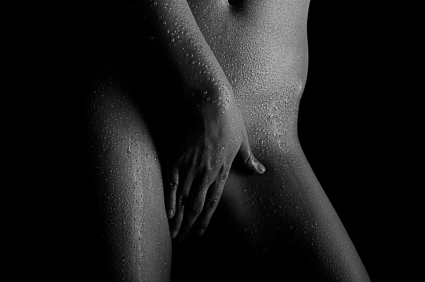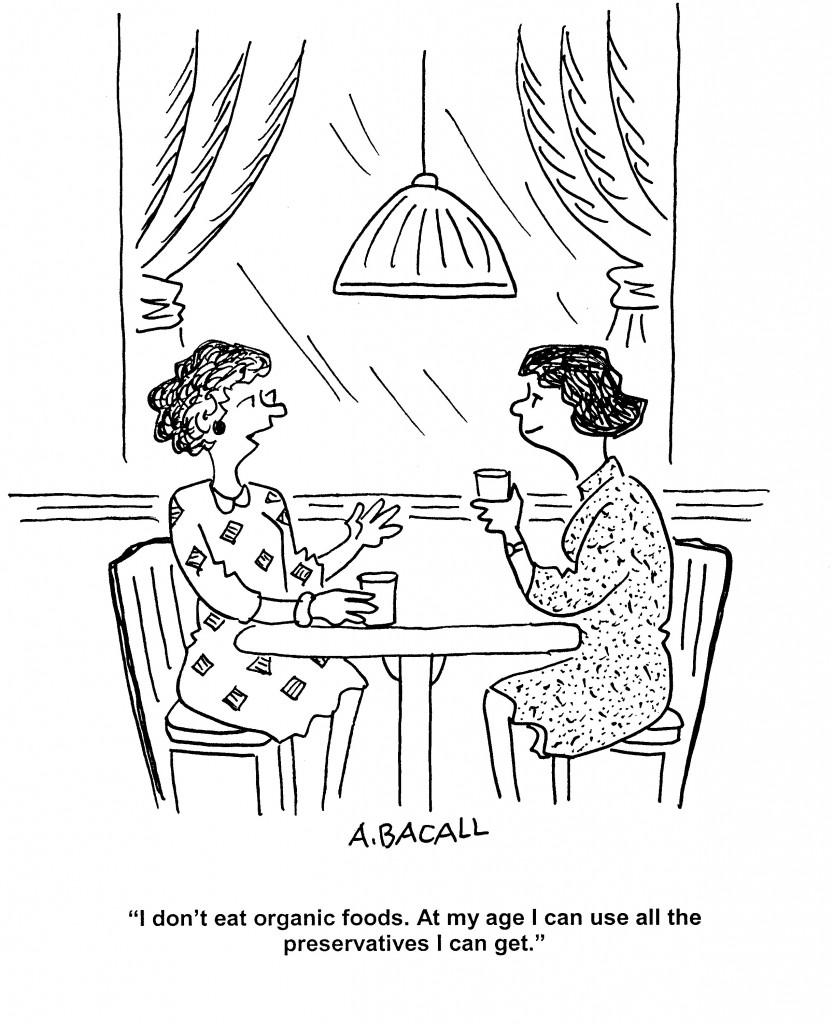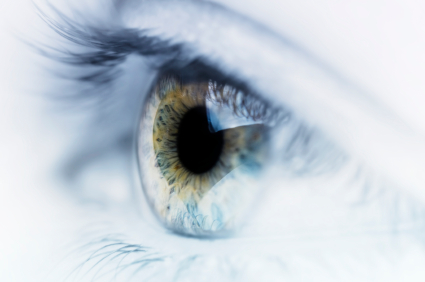What’s your ‘I’m fat, I’m old’ talk quotient?
When was last time you thought to yourself, ‘I’m fat?’ How about ‘I’m old?’ Sound familiar?
If you are like most women, these words have likely crossed your mind at least once if not several times. And while we tend to pay lots of attention to the ‘fat talk’, less attention appears to be paid to how ‘old talk’ similarly impacts how women feel about themselves and perceive themselves. Not surprisingly, both are connected to the thin-ideal/young-ideal concept of beauty in Western society; just look at the number of products, drugs, and surgical procedures feared towards the preservation of youth and a youthful, wrinkle-free, cellulite-free appearance. As researcher Carolyn Beck writes in the Journal of Eating Disorders, “as women age, they increasingly move away not just from being thin but also from fulfilling the young element of the thin-young ideal. Accordingly, aging creates new opportunities for discrepancies between women’s bodies and cultural body ideals.”
Dissatisfaction with appearance and one’s body has been known to be correlated with binge eating, emotional eating, stress, low self-esteem, depression, and use of unhealthy weight control behaviors. When Dr. Beck and her colleagues set out to discover if fat talk and old talk had the same effect on body image, they found that among a sample of over 900 women, those who reported frequently talking about how fat they were or how old they were tended to have more negative body images. Importantly, an overwhelming majority of women — 81% — engaged in ‘fat talk’ at least occasionally and a full third reported frequently ‘fat talking.’ Their aging peers? At least 66% engaged in ‘old talk’ with friends and family occasionally, while 15% reported talking old more often. What’s more, the frequency of old talk tended to increase the older that women became.
Dr. Beck says that women’s self talk, be it about fat/thin or young/old, is an important public health issue as are the factors that play a role in causing, sustaining or deepening a women’s displeasure with her body. And while the two ideals are related, when women are young, the most salient aspect of self image is ‘thinness;’ conversely, as they age and enter midlife, both thinness and youth appear to be important. Overtime, thinness loses out to youthful.
When do we, as women, give ourselves a break? By buying into the thin-ideal/young-ideal constructs, we are robbing ourselves of the opportunity to recreate our individual ideals, those that work best for ourselves. When 1,000 women between the ages of 18 and 87 agree that image plays such an important a role in how they view themselves, it should cause us to pause. We seem to be doing a lot of talking without saying or DOING much, other than to self-criticize, self-demoralize, self-dissatisfy, self-disconnect and self-sabotage. I would posit that it’s time to change the dialogue.
Read More
Wednesday Bubble: Goal Weight: Charlize Theron. Guest post by Nina Perez
Have you heard of VaginaCon? If not, you need to click your way over to the site, which as co-founded by the amazing Nina Perez. VaginaCon is a safe place for women to connect with one another and build relationships. Sort of like Flashfree but on a broader scale. But I digress because this post is really about Nina. I was fortunate to meet Nina via the Interwebz when were were members of the same Facebook group. She is an astonishingly creative, intelligent go-getter who is redefining the meaning of ‘hawt.’ More importantly, however, is that last week, Nina posted a raw and honest piece about her weight loss journey and self-acceptance. Frankly, the post resonated so deeply that I asked if I could repost it here.
The next time you start criticizing yourself about your weight, beating yourself up about falling short of impossible goals or creating a standard that is a bit out of the realm of possibilities, step back. Carve those goals into smaller pieces. And take a look back in the mirror. Bet you’ll see what others are seeing; the beauty that is you.
Yeah, sounds cheesy but Nina has shared a journey that demonstrates that it’s really true. And by the way Nina? You are one hot gorgeous woman inside and out.
Show some love, eh?
When I started my weight loss journey on January 2, 2012, I was 238lbs. The healthy weight for my height falls between 143lbs and 179lbs.
Even if I were aiming for the high end, 179lbs seemed far, far away and losing 59lbs seemed like something that would take a long ass time. I gave myself a year. But still, a year? Holy hell.
Like most people fed up with being overweight, I wanted the pounds to melt away. I knew almost immediately that I’d have to set mini-goals to keep my head in the game. Luckily, Weight Watchers sets your first two goals for you: First, you strive to lose 5% of your starting weight. For me, that was 11.5lbs. I hit that by January 25th. Next, it was 10%.
But to keep it interesting, and to keep myself motivated, I gave myself goals that had nothing to do with the number on the scale along with a few that did. For instance:
- I wanted to be 214lbs by March 23rd when I had the first VaginaCon at my house. (Did it.)
- I wanted to be less than 200lbs by my birthday, August 18th. (Done.)
- I wanted to fit into a size 16 jeans. (Been there, did that.)
- I wanted to fit into a size 14 jeans. (In them now.)
- I wanted to wear my sexy shoes again without feeling like I was asking way too much of my impossibly high heels – they have their limits, too.
- I wanted smaller panties.
- I wanted to stop wearing XL t-shirts.
There was one mini-goal I didn’t give much thought to, until I hit it, and it was the first one I achieved. One day, after losing about 8-11lbs, I was walking down the stairs wearing nothing but a short nightgown. As I hit the first floor, I realized something was different. To test that it wasn’t a fluke, I began to briskly pace in my kitchen. My husband came downstairs and asked, “What the hell are you doing?”
“My thighs aren’t rubbing together!”
I was thrilled.
But what about my overall goal? What should I shoot for between 143-179? I’m not very good at looking at someone and judging their height and weight. I couldn’t tell you what 175lbs looks like on a person who is 6-feet-tall or someone who’s 5’5″. In that picture above, I wouldn’t be able to guess that was 204lbs.
After some thought, I decided that 180lbs would be my look-and-see weight. I’ll get to 180 and then look and see if I like it.
How do I look in my jeans? Can I wear a bathing suit again without wanting to cry in shame? For as much as this is about being healthy and making sure I’m around to see my kids grow up, it’s also about, for me, how I look. I don’t want fat hanging over the waistline of my jeans, and I like my ass to look firm in them. I had a vague memory of what 180 looked like on me (see above), but more importantly, I know how I want to look and feel in my clothes.
I’m always looking at other women who are my height and (in my opinion) in great shape, wondering how much they weigh. While I want to be thinner, I don’t want to lose curves. So, that’s why when Donny and I went to see Prometheus – a horrible movie despite starring two of my Freebie Five: Michael Fassbender and Idris Elba – back in June, and I saw Charlize Theron, I whispered to my husband, “New goal weight: Charlize Theron!”
I went home and did a Google search: How much does Charlize Theron weigh? Granted, I’m not sure this information is entirely accurate, but word on the internet streets is that she is my height and weighs 135lbs.
Um, no.
I am never going to be 135lbs again. That’s just not happening. That’s below my supposed healthy weight range! If I were younger, and perhaps easily swayed by what celebrities do, I might try to hit 135lbs, but thankfully I am neither of those things. While I still feel like I would love to look like this in my clothes:
… I’m just gonna have to rock that at about 170′ish…and with a little more curve.
What is your ultimate weight goal? Do you have mini-goals that are not determined by the scale? What about weight loss milestones like an upcoming party or other special event?
About Nina Perez…
Nina Perez is the author of The Twin Prophecies: Rebirth, Blog It Out, B*tch, and The Twin Prophecies: Origins (Summer 2012). She is co-founder of VaginaCon.com, a contributor to Milk & Ink: A Mosaic of Motherhood, Choose or Die, Elephant Words and one of the merry band of independent authors rocking it hard at the Literary Underground. Her short story, Amongst the Tulips, was published in Foliate Oaks online literary magazine and their editors voted it one of the best short stories of 2009. She also runs the book review site for independent authors, Nina’s Nightstand.
Read More
The ‘look’
Do you look your age? As we all know, we are a society driven by image and appearances and often, too often in fact, the quest to look younger becomes a destination, rather than the last fork in the road.
So, what factors drive others’ perceptions as well as our own? And does a youthful appearance truly matter?
According to study published a few years ago in PLOS ONe, it matters only in the sense that perception may actually drive healthy behavior, not only in individuals but also in populations are a whole.
Numerous factors are believed or have been shown to influence how young or old a person appears, including genetics, sun exposure, smoking history, diet, weight and of course, menopausal status, leading to wrinkles, sagging jawlines, thinning lips, evenness of skin colouring and the distribution of fat in the face. It has also been postulated that having a low BMI, lower social class status, a history of depression and heart disease can cause women to look older.
In fact, the findings demonstrated that:
- The less education women had, the older they looked. Indeed, women with 0 to 6 years of education appeared roughly 4 years older than those with 7 to 9 years, and more than 5 years older than women who had 10 or more years of education.
- Menopausal women looked, on average, 3.5 years older than women who were premenopausal.
- Compared to women who visited a healthcare practitioner 6 or more times a year, women who didn’t take care of their health were judged to be about 5 years older.
- Women with jobs that required them to be active most of the day appeared almost 3 years older than women who were active for only part of for short periods during the day.
- Frequency of brushing ones teeth also appeared to influence perceived age, with women who cleansed their teeth at least twice daily appearing on average, almost 5 years younger than women who brushed their teeth once a day.
- Not surprisingly, exposure to the sun/elements also played an important; women who worked outside looked almost 6.5 years older than their counterparts who had worked inside most of their lives.
- Frequent use of facial cleansers and moisturizers improved youthful appearance, taking as much as 2 to 4 years off of how old women were judged to be.
The researchers point out that their findings are based on facial aging (instead of just skin aging) and its link with our overall health and wellbeing, and that they methodically examined how perceived and chronological age related to specific details about health and lifestyle. One of the most interesting discoveries is that there appeared to be a huge distinction between women who are health conscious and also have access to medical care versus those who are ill and require medical care, which highlights the growing importance of reframing healthcare for women (and for men) in such a way that socioeconomics no longer drive access but rather, society begins to realize that access will ultimately drive socioeconomics. Meanwhile, it is possible that in our quest to look younger, and short of cosmetic plumping, sucking and tightening, we may have actually stumbled across the holy grail: healthy behavior and lifestyle. The bottom line is that outlook may be as important as our look, at least in terms of how we are perceived by others.
Read More
The cougar and the prom
 Years ago, I wrote a post about The Cougar Convention, an extravaganza of botoxed, boob-jobbed, eyebrow-shaped 40+ somethings (and their younger ‘Puma’ peers) who attend presentations, celebrate the crowning of the first Miss Cougar America and mingle at a bass-booming cougar ball (read: prom). And so, when I caught an article in yesterday’s New York Times Style Section entitled “For Would-Be Cougars, the Prom is a Good Start,” I wanted to cry because somehow, the author fails to celebrate what is truly remarkable: young girls who feel self confident enough to make their own choices despite highschool and peer pressure.
Years ago, I wrote a post about The Cougar Convention, an extravaganza of botoxed, boob-jobbed, eyebrow-shaped 40+ somethings (and their younger ‘Puma’ peers) who attend presentations, celebrate the crowning of the first Miss Cougar America and mingle at a bass-booming cougar ball (read: prom). And so, when I caught an article in yesterday’s New York Times Style Section entitled “For Would-Be Cougars, the Prom is a Good Start,” I wanted to cry because somehow, the author fails to celebrate what is truly remarkable: young girls who feel self confident enough to make their own choices despite highschool and peer pressure.
The Times piece focuses on the ‘cougar in training,’ young girls who choose to ask boys as much as a few years their junior to the prom. “Call it young cougars, a game of confidence or just female empowerment, but the unthinkable during my high school years is now happening all around me and other mothers of my acquaintance. A growing number of our teenage girls are unabashedly showing their preference for younger boys, saying they are not only more respectful than their older counterparts, but generally nicer to date.”
Later in the piece she writes that this trend continues longer than highschool…“but if Kate Burkhardt, a junior at Dartmouth College, is correct, the cougar-in-training trend could continue as these high schoolers get older. She dated her high school boyfriend, one grade below her, through her freshman year of college. They finally broke up when he went to college.”
Has society finally rubberstamped the cougar narrative?
Therein lies my objection; why do we endorse the image of a desperate older women who will risk all to attract the attention of a ‘younger male prey?’ I don’t believe that there is anything wrong about dating younger (or older) men (or women). However, what is wrong is perpetuating the self degrading myth.
As I wrote several years ago, “These ladies (the women who attend the convention) may be in it for a good time and believe that they have every right to behave in this fashion. They do; it’s a free country. But think about it; as women, we are consistently complaining about how we are portrayed in the media and within society, especially as we age. If this is the case, why are we spending thousands of dollars to literally sculpt ourselves into charactertures of our better selves?
These’ cougars in training’? They may be giving their older ‘role models’ a run for their money one day, merely because they are doing it the right way and the way that our sisters fought to have it done: they are keeping it real and self-respectful, taking care of themselves and listening to their hearts.
So why do we need to make fun? They are doing everything right, aren’t they? And in some respects, they are demonstrating that self love is a helluvalot more attractive than inches of foundation, a lip plumper and a few nips and tucks.
Truly… before we start proclaiming that these girls are learning how to pimp their hides, shouldn’t be step back and applaud them?. There’s nothing wrong with dating a younger man (or woman). Why don’t we take a page from their playbooks and keep the predator at bay where she belongs.
Read MoreWednesday Bubble: Designer What?!
 Rarely do I run across editorials in medical journals that catch my attention at the first sentence. However, this one wins my vote, not only for its candor but also for its attempt to clear the air, so to speak about ‘designer vaginas.’
Rarely do I run across editorials in medical journals that catch my attention at the first sentence. However, this one wins my vote, not only for its candor but also for its attempt to clear the air, so to speak about ‘designer vaginas.’
Designer what?
You may recall that I ran a piece in early February about vaginal rejuvenation and the promise the procedure offers to millions of women who are concerned about their aging va-jay-jays.
Hold on for one sec! You may want to reconsider getting a facelift ‘down there.’ At least according to two physicians from Yale.
Burstable? You bet!
Drs. Alexandra Pencow and Marsha Guess from Yale University School of Medicine say that the purported benefits of female genital cosmetic surgery (FGCS), namely that there is a “normal or standard in vaginal aesthetics,” or that FGCS will “result in improved sexual function” are misleading. They write (in the April issue of the journal Maturitas):
“The ‘designer vagina’ sounds like the name of a ‘Sex in the City’ episode, and may evoke a variety of responses, from enthusiasm for anything that can make the vagina more modern and user-friendly, to mistrust for unproven treatments for conditions that have not been clearly defined.”
FGCS refers to surgical procedures that modify the shape, caliber or length of the vagina and external genitals for aesthetic purposes. They include:
- Labiaplasty, to reduce labial size or corrects irregularities (if the labia are too large, elongated or assymetrical)
- Vaginoplasty or vaginal rejuvenation, to narrowsthe vagina and the vaginal entrance
- Clitoral unhooding, geared towards removing the tissue surrounding the clitoris to enhance sexual and genital sensation
- Hymenoplasty, a form of ‘revagnation,’ in which the hymen is reconstructed to mimic virginity
- G-spot amplification, i.e. injecting collagen into the vaginal wall to increase sexual satisfaction/sensitivity
The physicians write that despite the lack of clinical evidence proving benefit, these procedures have increased three-fold or more in both the U.S. and the United Kingdom. They also note that the media, talk shows, women’s magazines and the Internet combined have worked to perpetuate myths about these procedures without properly explaining the reasons why they might be done other than aesthetics. Procedures such as the ones described above can be invaluable following cancer, trauma or pelvic organ prolapse to improve life quality and treat certain symptoms.
Still, when it comes to aesthetics, there is a lack of standards for these procedures to define proper follow up and outcomes. Even more important is the fact that there is no true definition of “normal.” How then does a woman who desires smaller labia or an enhanced vagina temper her expectations?
Sexuality, sexual desire and sexual satisfaction are multifacted and personal, influenced by life stressors, environment, mood, self-esteem, hormones, personality and social and partner support. The new ‘normal’ isn’t supposed to be defined by the medical community and the media, is it? Just as the Menopause Industrial Complex wants to sell you on HRT, so apparently do the Vaginal Patrol wish to convince you that your parts ‘down under’ need a nip, tuck, an ‘Occupy,’ if you will.
Designer vaginas? Evidently, they’re here to stay. The benefits, however? Hard to say.
Read More












